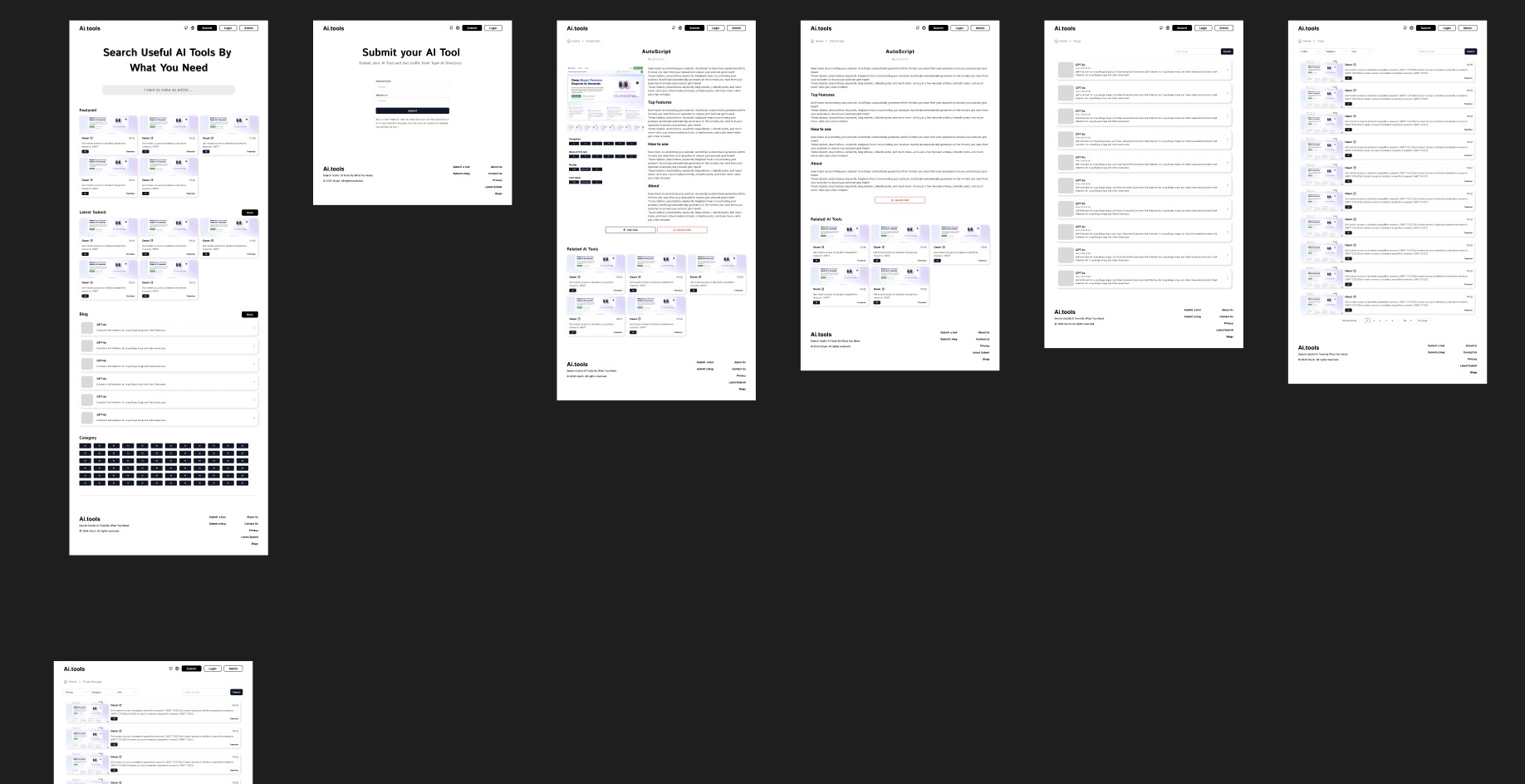AigoTools helps users quickly create and manage navigation sites with built-in site management and automatic inclusion features. It also offers internationalization, SEO, and multiple image storage solutions, enabling users to quickly deploy and launch their own navigation site.
Visit here: www.aigotools.com
aigotools-preview.mp4
- Table of Contents
- Features
- Deployment
- Development
- Figma Resource
- Maintainers
- How to Contribute
- Contact Us
- License
- Site Management
- Automatic Site Information Collection (playwright, jina, openai)
- User Management (clerk)
- Internationalization
- Dark/Light Theme Toggle
- SEO Optimization
- Multiple Image Storage Solutions (local minio, AWS S3, Tencent Cloud COS)
This project consists of the main navigation site (packages/aigotools) and the inclusion service (packages/crawler). It can be deployed via hosting services like Zeabur or directly on a local machine using docker-compose.
- Create an application at https://clerk.com/ and add a user to log in as the admin for the management backend.
- Obtain
OpenAI apiKeyandjina apiKey, which are used for site inclusion. - Set up MongoDB and Redis databases.
-
Clone the repository:
git clone https://github.com/someu/aigotools.git cd aigotools -
Configure environment variables: Copy the
.envfiles inpackages/aigotoolsandpackages/crawlerto.env.prod.cp packages/aigotools/.env packages/aigotools/.env.prod cp packages/crawler/.env packages/crawler/.env.prod
Modify the configuration files accordingly.
-
Start the project:
docker-compose up -d
Note: If using minio for image storage, you can initially leave the minio authentication configuration empty when starting the project. After running the project, access the minio management backend to create a Bucket, ACCESS_KEY, and SECRET_KEY, enable public read permissions for the Bucket, update the configuration file, and restart the project.
Refer to the documentation: zeabur-deploy.md
Zeabur demo link: https://aigotools.zeabur.app/
-
Clone the repository:
git clone https://github.com/someu/aigotools.git cd aigotools -
Install dependencies:
pnpm i
-
Configure environment variables: Copy the
.envfiles inpackages/aigotoolsandpackages/crawlerto.env.localand modify the configuration files.cp packages/aigotools/.env packages/aigotools/.env.local cp packages/crawler/.env packages/crawler/.env.local
-
Start the project: Navigate to
packages/aigotoolsandpackages/crawlerrespectively.pnpm run dev
We have also open-sourced the design drafts for this project. Feel free to use the UI and code from this project to develop your own website.
https://www.figma.com/community/file/1385200592630492334/aigotools
We warmly welcome your contributions! Submit an Issue or submit a Pull Request.
For any questions or suggestions, please contact us via:
- GitHub Issues: Submit Issues
- Email: someuxyz@gmail.com
AigoTools is licensed under the Apache License 2.0. For more details, see the LICENSE file.

